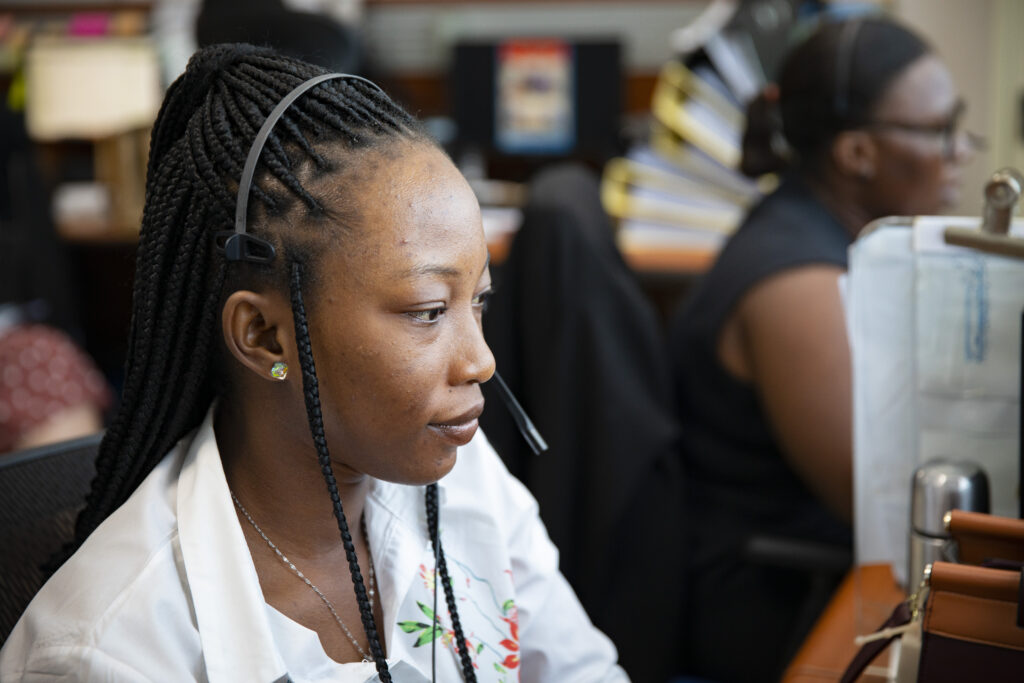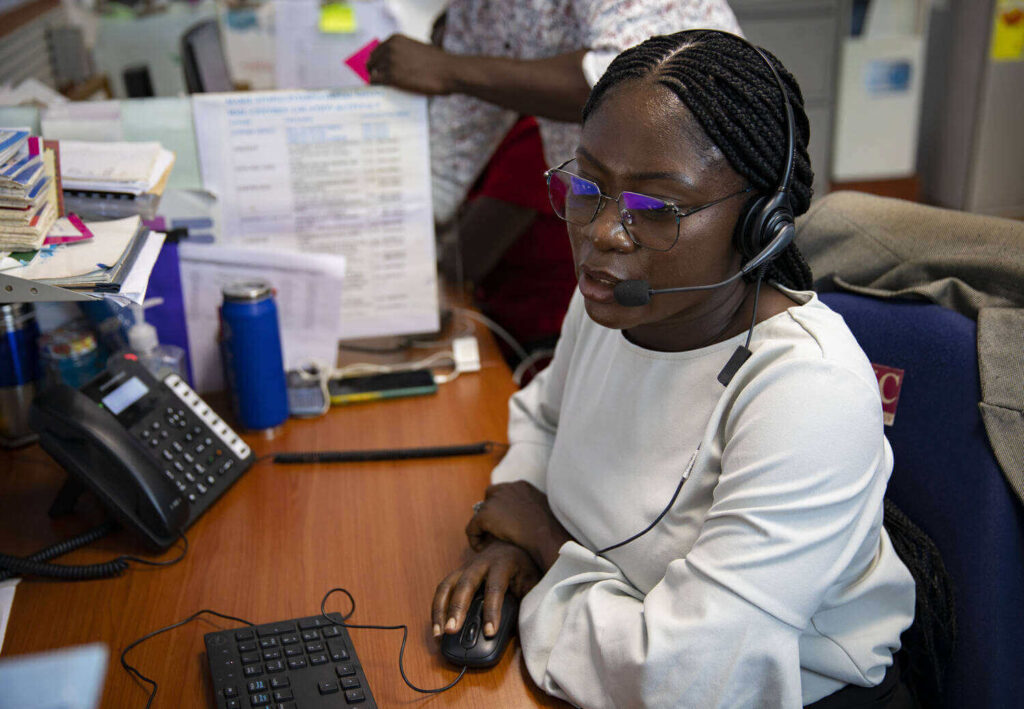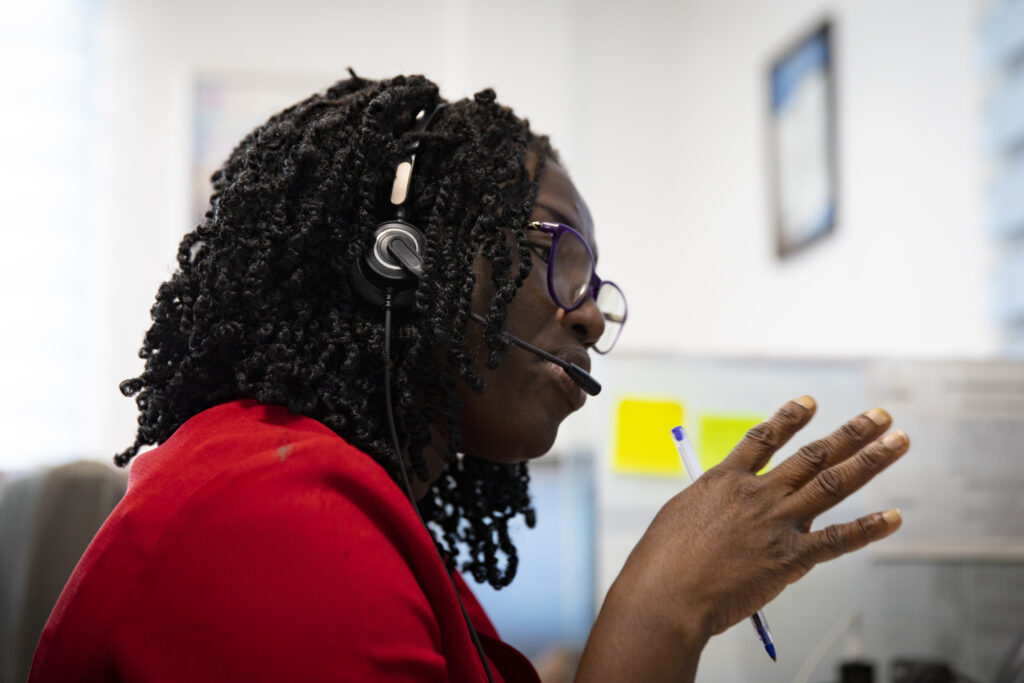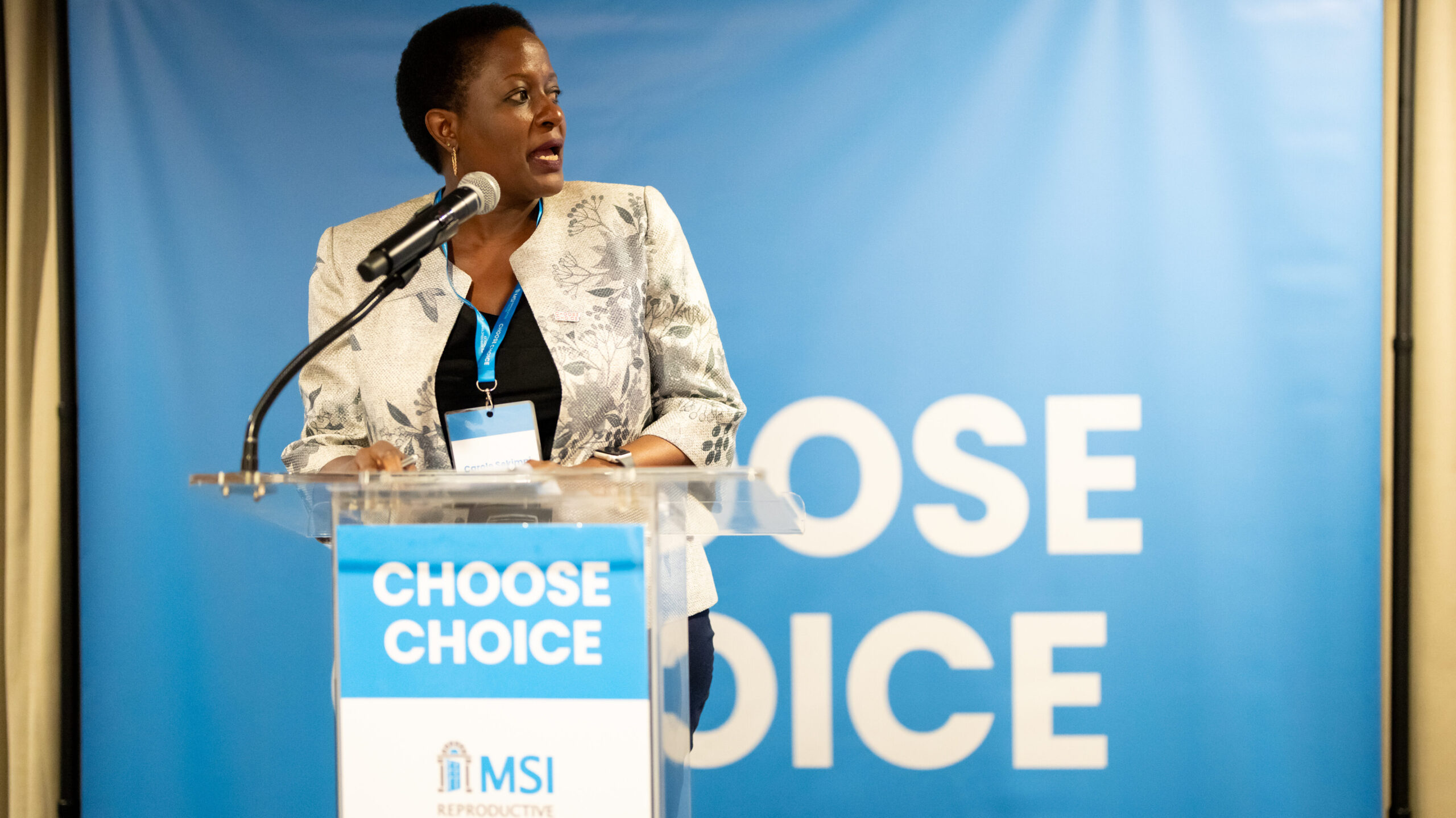MSI’s Global Contact Centre Lead, Eph Muvirimi, delves into how innovations in our global contact centres are changing the game, expanding access to reproductive healthcare and transforming lives.
My path led me to MSI
I grew up in Zimbabwe at a time when my two main forms of wider communication were writing letters and getting messages from the one landline on our street, at house #11, whose owners were generous enough to take messages for the neighbourhood. Looking back, I see what a challenge communication was.
Today, it fascinates me how many different ways we can communicate and how we can use information from all over the world to relate to someone’s lived experience. No wonder I ended up in the world of contact centres. That, and my love of talking!

I’ve worked in contact centres for the past twenty years, initially specialising in sales and customer service. I’ve led teams that sold broadband over webchat and the only team in the UK selling vehicles over the phone (we made over £8 million in just one month!) I also managed a team of 200 people across two continents taking incoming calls for a TV shopping channel.
I enjoyed my work, but something was missing. My wife is a mental health nurse, working in the criminal justice system. I was inspired by how she would describe her working day after getting defendants the help they need, when all I could come back with was, “Yeah, I had a good day too! My team smashed their sales target for broadband subscriptions…” I wanted my work to make a difference to someone’s life, so when the role of Global Contact Centre Lead at MSI came along in 2017, I jumped at it!
I believe providing reproductive choice can change lives. I know classmates who dropped out of school because of an unintended pregnancy, and I watched a young relative become a single mother to three children very early in her life. I wonder what their futures could have been if they’d had access to contraception.
Bringing MSI’s contact centres up to speed

When I joined MSI, many of our contact centres were still developing and it wasn’t clear yet how many people we were helping. In some countries, the contact centre consisted of a couple of mobile phones and an A4 exercise book, ran by extraordinary people dedicated to our mission. One colleague in Sierra Leone would take the mobile phone everywhere with her—home, church, you name it—so she could answer as many calls as she could and help people when they needed it.
While our contact centres have never lacked passion, they needed support and infrastructure. Having come from a results and data-driven background, my expertise came in handy to help drive us forward.
Among many milestones, we now have a comprehensive training package for contact centre agents alongside processes and systems to help us better serve more clients. We’re now steeped in data and able to confidentially connect client records and capture client information—no matter which communication channel they contact us through—so we can avoid siloed conversations and deliver a better service. This saves our centre receptionists about five minutes of admin for each client registration; for the 19 million people we served last year, this equates to 164 years!
How the contact centres work

MSI has 33 contact centres across the world. It’s free to call us because we believe everyone has a right to accurate information and safe services. When someone contacts us, we provide non-judgemental information, explain their reproductive health options, and let them know where to access safe services.
We can provide the best service possible when we can speak to clients in their native languages and know the cultural and legal landscapes they’re living in – that’s why our contact centres are based in the countries we work in around the world. It’s no good a Hausa-speaking person in Nigeria picking up a call from a Chichewa-speaking person in Malawi!
Our contact centre strategy is agile and constantly flexing as people change the ways they communicate. COVID-19 posed some unique challenges. Lockdown restrictions coupled with curfews meant some women couldn’t call and talk openly about their reproductive health because their family was always around. That’s when our WhatsApp and Facebook message function became even more critical. I know of a young woman in South Africa—where abortion is legal but still culturally stigmatised—who silently messaged us for advice on accessing an abortion while sitting with her family. We were able to help her and give her the reassurance and advice she needed discreetly.
We’re seeing a shift towards messaging around the world; it’s a win-win because it allows us to help many more people at once and it frees up phone lines for those who need them or prefer to talk.
Our smart marketing strategies mean people know how to reach us. We get our number out there online, over social media, on billboards, posters, everywhere we can. And our staff and partners working in local communities give our number out to people too. The number of people we’re supporting every year is growing substantially: from 1.5 million in 2018 to 2.7 million last year!
And for those people who don’t have access to technology to reach us, MSI’s other strategies are doing a good job at reaching them. Our centres, our outreach teams, our MSI Ladies, our partnerships… all our programmes complement each other and have their part to play in increasing access.
Exciting innovations on the way!
MSI’s aim is that across the countries we work in, no one is more than one contact and one hour away from a safe service. Our contact centres are critical to this, but we know that we can’t deliver this on our own; our partnerships are crucial.
There are huge opportunities to scale up our contact centres to be a central source of information for the entire sector. In Nepal, we’re partnering with the government so that our contact centre can become a central hub for everyone seeking sexual and reproductive healthcare information.
We’re also busy mapping safe access sites, so we’re able to direct people to their nearest quality service, whether that’s provided by MSI or not.
In some of the countries we work in, medical abortion pills are enabling women to have abortions safely at home. Our contact centres are there to talk women through the process and offer aftercare support over the phone. This is revolutionising service delivery.
And soon we’ll be piloting a virtual assistant (chatbot) to help provide immediate answers to some of our clients’ simpler questions over Facebook and WhatsApp. We’ll be more responsive to clients whilst freeing up our staff to help with more personal and complex enquiries.
In short, we’re changing the game, providing information at scale and at little cost. We’ve become so efficient that we can support a client with information on their options and where to access safe care for just 10p and I’m pleased that our contact centres take their pride of place in MSI’s Digital and Technology Strategy.
Tech is empowering women
I love that MSI calls the people we help ‘clients’, not ‘patients.’ It’s because they have a choice to call us and access our services and they can equally choose not to. That gives them the power.
Equipped with data, we know that when clients have a conversation with one of our contact centres before they go to a clinic, they are more likely to feel confident in their choice of contraception because they’ve had time to think through their options. We also have a chance to inform people about complementary services like cervical cancer screenings ahead of their appointment. Clients are able to mull over their choices and walk into the clinic knowing exactly what they want.
Our contact centres and the technology behind them enable women and girls around the world to have more agency over their decisions, choices, and futures. That’s why I now go home at the end of the day knowing I’ve made a difference in someone’s life.
If you ever need to speak openly, with full comfort and confidentiality about your experiences and choices, please call us, message us on Facebook, WhatsApp us. We are here for you.
Contact centre details for your country.
Read more about MSI’s Global Contact Centre Network in this informative two-page brief.









